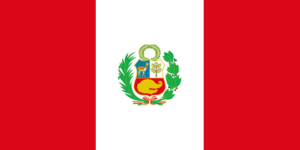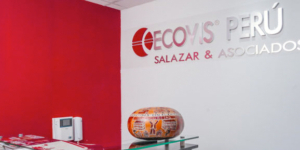
Ecovis in Peru
Tax advisors, accountants, auditors and consultants in Lima
International tax, audit, accounting and legal news

How employee and contractor AI use can create liability for employers: A guide for navigation
03.04.2024Corporate employees and contractors are increasingly using generative tools based on artificial intelligence (AI) in their work. Since legislation around the use of AI is still in its infancy, AI users are exposing companies to potential liability and, in turn, financial and reputational damage.
Areas of application of AI
Areas poised for significant adoption of (and disruption by) AI tools include media and entertainment, marketing and advertising, design, coding and engineering, graphic design, architecture, video games, and publishing, among countless others. The media, entertainment, video game, and marketing industries in particular face significant disruption as new tools and workflows allow financiers to cut costs, while the use of “digital replicas” in theory creates new avenues for talent to monetise their name and likeness and creative works.
While there remains some dissent as to just how quickly AI will disrupt traditional industries, there is consensus around one thing: The approaching tsunami of lawsuits arising from the use of artificial intelligence. Such suits will require intense scrutiny of contracts (particularly relating to representations and warranties, indemnification, and insurance provisions), website and app terms and conditions, and emerging new state and federal legislation as parties struggle to allocate liability for AI-related losses.
Do you need legal advice concerning AI’s impact on insurance? We have insight into this complex intersection of law.Christopher C. Loeber, Partner, Pryor Cashman LLP*, New York, USA
What companies should consider – a guide for navigation
The potential liability and legal risk for companies from the use of AI tools is a clear and present danger, and it is imperative that they act now. The experts at Pryor Cashman LLP* share tips on several best practices that all businesses should adopt immediately:
- Develop a clear understanding of how AI impacts your business
- Engage counsel to assist in mitigating AI-related risks, creating internal AI policies, and conforming existing business contracts to minimise AI-associated losses
- Engage insurance counsel to audit existing insurance policies and advise on future policy purchases and renewals
Would you like to find out more about the topic?
See full article…
For further information please contact:

Christopher C. Loeber, Partner, Pryor Cashman LLP*, New York, USA
Email: cloeber@pryorcashman.com

Simon Pulman, Partner, Pryor Cashman LLP*, New York, USA
Email: spulman@pryorcashman.com
*Ecovis cooperates with Pryor Cashman LLP (www.pryorcashman.com), a full-service, US-based law firm with offices in New York, Los Angeles and Miami.

International human rights law: Ecovis represents clients before the ECHR
03.04.2024The decisions of the highest national courts in individual states do not always result in a case being brought to a fair conclusion. In order to ultimately receive justice, those affected can appeal to the European Court of Human Rights (ECHR). The experts from the Ecovis international human rights law firm in Strasbourg explain how this can help.
The ECHR has long been seen as a model of justice and the last resort against state arbitrariness. At the same time, recently published ECHR statistics for 2023 show that a huge number of applications (10,600) were rejected at the preliminary stage because they did not comply with content requirements or deadlines. And of the 38,260 cases reviewed, only 1/5 were decided on their merits (6,931), while the vast majority were declared inadmissible or removed from the list of cases.
Since the Convention for the Protection of Human Rights and Fundamental Freedoms is a living organism and ECHR case law is constantly evolving, proper understanding and application can help avoid such problems.
The ECHR is empowered to consider applications from states party to the Convention, as well as applications from individuals or complaints from legal entities (e.g. associations) and non-governmental organisations.
The tasks of the ECHR
Only the conduct of a state which has violated fundamental rights and freedoms or failed to ensure their protection is subject to appeal. The ECHR does not consider applications against individuals or non-governmental organisations and is not a court of the “4th instance”.
In addition, the Court can only consider a case after all domestic options have been exhausted, and the time limit for filing an application is just four months from the date of the final decision in the case by the national judicial authorities. International human rights law firms can support clients in submitting complaints correctly by the relevant deadlines.
We have been representing clients before the European Court of Human Rights for many years and would be happy to advise you.Roland Giebenrath, lawyer, Dr. Giebenrath Rechtsanwälte/Avocats – Member of ECOVIS International, Strasbourg, France
Typical cases dealt with by the ECHR
And although a significant proportion of cases pending before the ECHR are complaints by individuals, more and more legal entities (or their associations) that have suffered violations of their property rights are appealing to Strasbourg, for example in the case of:
- protection of their rights, including the confiscation of goods (AKPAZ Limited v. Türkiye, No. 6800/09, 2022)
- non-recognition by the state of property acquired in good faith (ATIMA Limited v. Ukraine No. 56714/11, 2023)
- non-enforcement of an arbitral award made by the International Chamber of Commerce (BTS Holding, A. S. v. Slovakia, no. 55617/17, 2022)
- failure of the state to fulfil its positive obligations to protect property rights even in disputes between individuals or companies (SOVTRANSAVTO Holding v. Ukraine no. 48553/99, 2002)
To have a better chance of success in obtaining fair treatment, reaching an amicable settlement or recognition of the violation of rights, those affected should have their interests represented by experts from human rights law firms with many years of experience in representing clients before the ECHR.
Would you like to find out about current cases?
Some of the cases dealt with by Dr. Giebenrath Rechtsanwälte/Avocats – Member of ECOVIS International, Strasbourg – can be found here.
For further information please contact:
Roland Giebenrath, lawyer,
Dr. Giebenrath Rechtsanwälte/Avocats – Member of ECOVIS International, Strasbourg, France
Email: strasbourg-law@ecovis.com

Money laundering in Vietnam: The government’s national plan to combat it
25.03.2024Vietnam has adopted a catalogue of measures to prevent and combat money laundering, terrorist financing and the financing of the proliferation of weapons of mass destruction. The Ecovis consultants have put together what these money laundering measures in Vietnam are and what they mean for companies.
Decision no. 194/QD-TTg, signed by the Deputy Prime Minister of Vietnam on 23 February 2024, aims to quickly realise the Vietnamese government’s commitment with the Financial Action Task Force (FATF) to remove the country from the Increased Monitoring List (Grey List), while at the same time maintaining the country’s national interests.
An overview of money laundering measures in Vietnam
The decision sets out 17 specific actions to implement the commitment and demonstrate that the authorities have improved their understanding of money laundering/terrorist financing risks and are taking actions to mitigate these risks through the implementation of connected strategies and policies. They also underline the effective cooperation, coordination and communication between the relevant agencies.
Attention will be paid to strengthening formal cooperation (multilateral cooperation in extradition and legal assistance) and informal cooperation (e.g. between law enforcement agencies and financial intelligence units) with foreign partners by providing constructive information and proactively seeking cooperation regarding criminals and their assets. The competent authorities, including central agencies, will be provided with the appropriate resources to carry out international cooperation.
We are happy to answer your more detailed questions about money laundering measures in Vietnam.Nghia Duong Tran, Partner of Tax, Accounting and Consulting, ECOVIS AFA Vietnam, Danang City, Vietnam
Vietnam will develop a legal framework to prohibit or regulate virtual assets and virtual asset service providers and demonstrate the enforcement of regulations to ensure compliance.
Law enforcement and prosecution agencies will prioritise parallel financial investigations and demonstrate a significant and sustainable increase in the number of money laundering investigations and prosecutions, consistent with Vietnam’s money laundering risk profile.
For further information please contact:
Nghia Duong Tran, Partner of Tax, Accounting and Consulting, ECOVIS AFA Vietnam, Danang City, Vietnam
Email: nghia.tran@ecovis.com.vn







